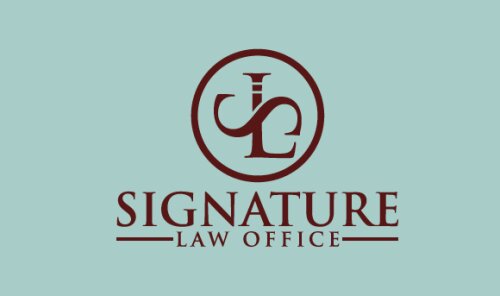Best Annulment Lawyers in Canada
Share your needs with us, get contacted by law firms.
Free. Takes 2 min.
Free Guide to Hiring a Family Lawyer
Or refine your search by selecting a city:
List of the best lawyers in Canada
About Annulment Law in Canada
In Canada, an annulment is a legal procedure that declares a marriage null and void, as though it never existed. Unlike divorce, which ends a legally valid marriage, annulment invalidates the marriage itself. Annulments can be pursued under certain circumstances, such as cases of incapacity, incomplete compliance with legal marriage requirements, or fraud. Each province in Canada has its regulations governing annulments, aligning with federal legal standards.
Why You May Need a Lawyer
Legal complexities associated with annulment can necessitate the expertise of a lawyer. Situations where legal help might be essential include:
- Uncertainty about eligibility for an annulment based on local laws.
- Need for evidence gathering to prove grounds for annulment, such as fraud or duress.
- Disagreements on issues such as property division or child custody that may not automatically resolve through annulment.
- Assistance navigating the judicial system, paperwork, and timelines associated with filing for annulment.
Local Laws Overview
Annulment laws in Canada vary by province but share several foundational principles. Key aspects include:
- Grounds for annulment often include fraud, coercion, mental incapacity, failure to consummate the marriage, or being underaged at the time of marriage without required permissions.
- Federal and provincial laws require proof of a defect in the marriage contract to grant an annulment.
- In certain cases, religious annulments may occur separately from legal ones, however, they do not have legal standing unless validated by the court.
Frequently Asked Questions
What is the difference between annulment and divorce?
Annulment declares a marriage null and void as if it never happened, whereas divorce legally ends a valid marriage.
What are the common grounds for annulment in Canada?
Common grounds include fraud, duress, bigamy, incapacity, age restrictions, or non-compliance with legal marriage requirements.
How long do I have to apply for an annulment after marriage?
Timelines vary by case and reason; it's best to seek legal advice quickly as some issues may have time-sensitive requirements.
Is a legal annulment recognized by religious institutions?
A legal annulment may not automatically be recognized by religious institutions; separate religious proceedings might be necessary for acknowledgment within the faith.
Can I remarry immediately after an annulment?
Once a legal annulment is granted, you may marry again, subject to typical legal marriage requirements in your province.
Will assets and debts be divided during an annulment?
The court may consider asset and debt division, but as annulment rules vary, it's vital to consult legal professionals for advice on individual cases.
What happens to children from an annulled marriage?
Legal decisions regarding children, such as custody and support, are treated separately in annulments to ensure their best interests, similar to divorce proceedings.
Is residency in Canada required to apply for an annulment?
Typically, one of the parties needs to be a resident in the province where you're applying for an annulment.
Can both parties in a marriage apply for an annulment?
Yes, either spouse or both can apply for an annulment, provided there are valid legal reasons and agreement on the grounds.
Does a marriage need to be short for an annulment to be granted?
The length of the marriage is not necessarily a factor in annulment cases; the focus is on the validity of the marriage from the beginning.
Additional Resources
For those seeking guidance, several resources can offer support and information:
- Provincial and territorial court websites that provide legal forms and guides.
- Legal aid offices offering consultations and legal representation for eligible individuals.
- Family law centers and clinics that specialize in marriage and annulment proceedings.
- Public libraries with access to legal texts and resources.
Next Steps
If you are considering an annulment and require legal assistance, consider taking these steps:
- Contact a family law attorney experienced in annulments to discuss your situation and potential grounds for annulment.
- Gather any necessary documentation related to your marriage, such as marriage certificates, communication showing fraud or duress, and relevant evidence.
- Check your eligibility for legal aid, which can provide valuable support if you are unable to afford a private lawyer.
- Consider attending a family law clinic or workshop to familiarize yourself with the process and gain additional insights.
Ultimately, a qualified legal professional can guide you through the annulment process, ensuring your rights are protected and proceedings are conducted smoothly.
Lawzana helps you find the best lawyers and law firms in Canada through a curated and pre-screened list of qualified legal professionals. Our platform offers rankings and detailed profiles of attorneys and law firms, allowing you to compare based on practice areas, including Annulment, experience, and client feedback.
Each profile includes a description of the firm's areas of practice, client reviews, team members and partners, year of establishment, spoken languages, office locations, contact information, social media presence, and any published articles or resources. Most firms on our platform speak English and are experienced in both local and international legal matters.
Get a quote from top-rated law firms in Canada — quickly, securely, and without unnecessary hassle.
Disclaimer:
The information provided on this page is for general informational purposes only and does not constitute legal advice. While we strive to ensure the accuracy and relevance of the content, legal information may change over time, and interpretations of the law can vary. You should always consult with a qualified legal professional for advice specific to your situation.
We disclaim all liability for actions taken or not taken based on the content of this page. If you believe any information is incorrect or outdated, please contact us, and we will review and update it where appropriate.
Browse annulment law firms by city in Canada
Refine your search by selecting a city.















